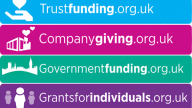Charity finance: writing better reports
As a finance professional, does the thought of writing a report fill you with dread?
If sitting down to write a report is not a task you look forward to and tend to put off until the last minute, then having a structure and plan to follow may take some of the pain away. This process could help to overcome the chronic procrastination that puts you under pressure when trying to complete the task in too short a timescale because you dreaded doing it in the first place!
Take the pain away by taking a structured approach
It can be helpful to divide the task into different parts: planning, writing and checking. The important thing is to allocate time and space in your diary to tackle the three different parts. Unless it’s a familiar short report – say, a couple of pages –you cannot expect to sit down on a Friday afternoon and dash it off between two and four pm in just one go. Most reports are a new challenge that require time, thought and preparation.
Planning means thinking about your purpose and your audience
Be very clear about the outcome you want. Are you trying to persuade, ask for funding, give information, challenge the status quo? What will your readers expect from you and who are they?
The next part of planning may involve researching the topic. This may also involve consulting stakeholders or other colleagues and experts. The important thing to remember at this stage is that it is exploratory and you have the freedom to consider many different ideas without being ‘hung up’ about the final result.
The final part of the planning stage is a bit more challenging when you have to decide what to leave in and what to take out. You need to go back to your original criteria at this point. There are many template structures for more formal reports which outline the scope of a report, findings and conclusions etc. Most organisations have their own house style versions but the key thing is to choose a structure that helps the reader to find their way around your report with ease.
The writing stage is about putting the meat on the bones of the skeleton structure
The style is business-like and impersonal. You are not writing War and Peace so the simple guidelines of accuracy, brevity and clarity will serve you well and are what you should check for in your final editing stage. You want to get your points across clearly and succinctly without using too many words. The objective is not to write a 5000 word assignment.
Leave enough time for editing and checking
This stage is often rushed. However good editing can make all the difference to your final copy and make the whole thing shorter and snappier. When it comes to checking, get someone else to read the report if you can or try reading it backwards because it is easier to spot spelling mistakes this way.
Although writing a report may be an onerous but necessary task, it is often part of a dynamic process that is about making change and getting results one way or another.


